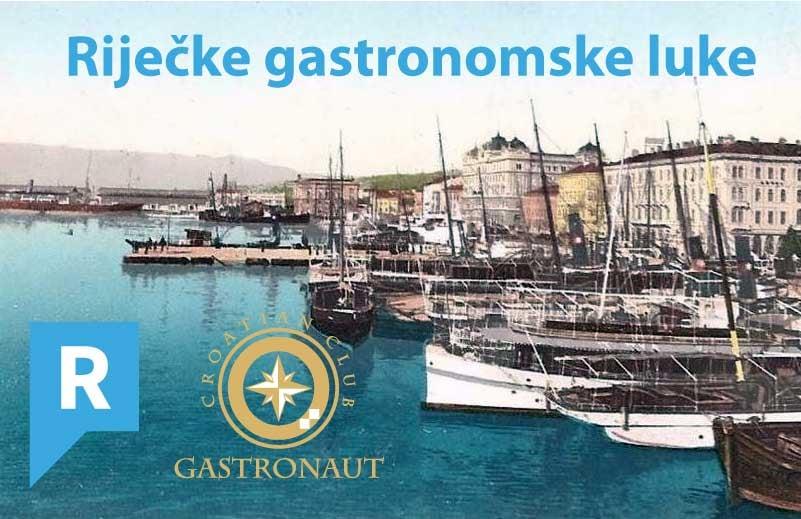The Rijeka Tourist Board and the company Abisal/Gastronaut Club have announced a new project that’s sure to pique the interest of all gourmet enthusiasts.
Rijeka Gastronomic Ports is a project that aims to bring together local catering facilities and create a unique story with immense marketing potential: a gastronomic brand that goes hand in hand with Rijeka’s port city image. The project would also offer support to caterers and improve the overall quality and brand recognition of Rijeka’s gastronomic offer.
The word port/harbour has positive connotations in itself and invokes a sense of safety: just think of the expression ‘a safe harbour’. A port is where we seek refuge from bad weather; it’s a place that promises nourishment and comfort, a place we leave feeling refreshed, feeling rested.
Such feelings invoked by ports can easily be applied to other aspects of life in Rijeka; many catering facilities in the city already resemble little proverbial ports. If we think of restaurants in this way, as a caterer, what kind of port would you like your restaurant to be? Or, as a guest, what would be your gastronomic port of choice?
Perhaps a sentimental one – a family port, a romantic port? On the other hand, some might prefer to think of ports as places to conduct business and would thus want for this to be reflected in their establishment.
The possibilities are endless; as a start, nine categories have been established in the initial phase of the project. Caterers are welcome to submit additional themes for consideration, as the project owners are willing to expand the list with categories they deem to have marketing potential, i.e. they reflect specific features or services that could potentially be interesting to citizens of Rijeka and their guests.
Here’s the initial list of categories, together with a few prerequisites that catering facilities need to meet if they’re looking to participate:
Business port – restaurants in this category should have the best available Wi-Fi, widely spaced tables, a separate area for meetings, several modes of payment available, and ideally reserved parking for guests if the establishment is located outside the city centre
Romantic port – restaurants that have an appropriate decor and ambiance, and feature dishes made of ingredients known for properties related to romance – chocolate, truffles, oysters…
Family port – restaurants need to be equipped with a children’s play area and a changing station for babies, offer children’s menus and provide games or colouring books to keep kids occupied at the table
Port for wine connoisseurs – the restaurant’s wine list must contain a minimum of 30 wines, grouped by variety and including detailed descriptions; staff should be trained in wine pairing, serving and decanting
Beer port – the restaurant’s beer list must contain a minimum of 20 beers; staff should be trained in beer and food pairing
Port of local produce – restaurants should be sourcing a minimum of 70% of ingredients from local producers or grow their own produce, and provide documentation to support the claim
Vegan port – the menu must feature at least 7 vegan-friendly dishes based on legumes, whole grains, beans, nuts, fruit, vegetables, and seeds (not containing dairy, eggs, honey, gelatin, etc.)
Fishing port – caterers that either run a fishing business or source their fish directly from local fishermen
Ports of individuality – a somewhat broad category to accommodate all caterers who bring something specific or unique to the table that is not defined by any of the other categories. This includes restaurants specialising in international cuisines, provided they offer at least 7 dishes authentic to the cuisine in question, have the menu translated into the language of the country of origin, and at least one person on the staff who speaks the said language.
Caterers can apply before February 15, 2022 by filling in this form (maximum of three categories). Those caterers who have yet to ensure their services match the prerequisites of a certain port category can request a deadline extension of three weeks, provided they send the request before February 15, 2022.
The Rijeka Gastronomic Ports project was devised by Karin Mimica, a native of Rijeka and the author of the two longest-lasting quality brands in Croatian hospitality – Restaurant Croatica and Gastronaut. She has also organised several dozen conferences and projects related to positioning and branding of gastronomy in tourism.
The project is co-financed by Rijeka Tourist Board, who plan to organise a number of educational workshops for caterers in collaboration with the Gastronaut club.










